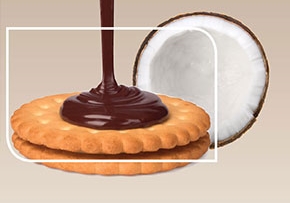Cargill’s cocoa and chocolate business is reportedly the first company to use Rainforest Alliance Certified coconut oil sourced through a mass balance model as an ingredient in its coatings and fillings.
Under the model , Cargill purchases a volume of coconut oil from Rainforest Alliance Certified farms equivalent to the volume used in these products to help protect forests and ensure sustainable livelihoods.
This is a response to its consumers’ growing demands for sustainably sourced ingredients.
“We use it to replace conventional coconut oil in the current coatings and fillings part of ice cream, bakery and confectionery applications, providing the same great sensory impression and quality as ever, while adding value to our customers’ recipes,” says Inge Demeyere, MD of Cargill’s chocolate activities in Europe.
Cargill together with BASF, Procter & Gamble (P&G) and the Deutsche Gesellschaft für Internationale Zusammenarbeit (GIZ) GmbH are developing a partnership as part of the develoPPP.de program of the German Federal Ministry of Economic Cooperation and Development (BMZ).
Working together to address the challenges facing the coconut supply chain, in 2015 the joint project reached a milestone by pioneering sustainability standards for coconut – producing among the world’s first Rainforest Alliance Certified copra, or dried coconut flesh.
Results for 300 coconut producers on Rainforest Alliance Certified farms in the Philippines participating in the first wave of the project (2011-2015) have brought a 15% increase in their incomes.
Cargill and its partners have also set further targets to train approximately 3,300 smallholder farmers and get at least 825 farmers to produce coconuts in the Philippines and Indonesia following the Rainforest Alliance Sustainable Agricultural Standard, with the aim of increasing their net incomes by 5-10% by the end of 2019.










